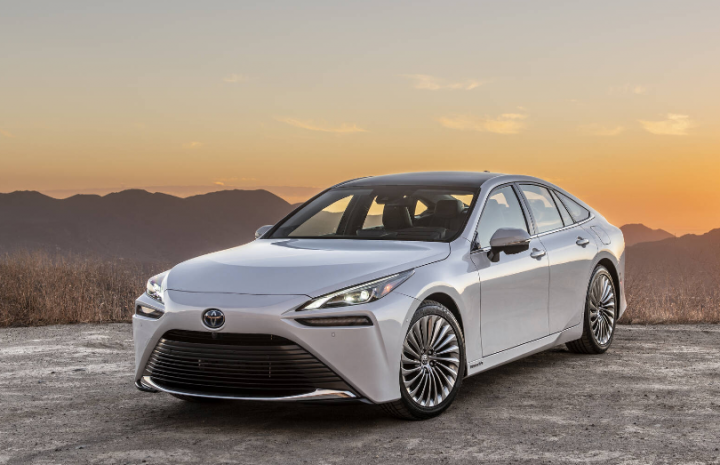In the world of alternative fuel solutions for vehicles, hydrogen has been near the top of the list. Toyota continues to think this could be a viable solution.
Many automakers experiment with different fuel sources but thus far, only gasoline, diesel, and electricity have caught on and been mainstreamed. Some automakers have looked into biodiesel, cooking oil, and hydrogen. Although hydrogen hasn’t caught on with every automaker, it seems to have potential benefits in the automotive world, but many consumers still have concerns over what this fuel has to offer.
Toyota’s new leadership supports hydrogen
Toyota has a new CEO, Koji Sato, and he has reported the company will put a lot of attention and investment into building hydrogen vehicles. Unfortunately, while Sato was supporting this alternative fuel, the FCV-powered Toyota GR Corolla that was meant to compete in a new race caught fire and had to be replaced. This vehicle caught fire during a test run because of a leak in its hydrogen fuel line. The racing machine was replaced by an ICE version of the GR Yaris. Does this accident mean Toyota should forgo this alternative fuel?
Why is hydrogen such a potential consideration?
Hydrogen is the most plentiful element in the atmosphere. Not only is it in the air, but the Earth is also covered in mostly water, which is two parts hydrogen and one part oxygen. Burning hydrogen can be efficient, clean, and useful, but also dangerous. In a properly functioning hydrogen vehicle, the only emissions expelled is water vapor. These vehicles can also refill the same way we current refill a gas or diesel fuel tank. Using hydrogen to fuel our cars would ensure the troubles we face with EV charging times would be gone for good.
How is Toyota invested in this alternative fuel?
Toyota might be hoping they can be as successful with hydrogen-powered cars as they were with hybrids when the Prius arrived. Part of this hope is an increased production capacity for the second-generation Mirai to 30,000 models per year, which is an increase of ten times what’s produced so far. This could be a bit too hopeful considering only 21,700 Mirai models have been sold thus far for both generations. Will this be an important part of the future of driving or will hydrogen eventually disappear and no longer be a possibility in our cars?
Toyota could use hydrogen in its future approach
Toyota has similar goals as many other automakers. This goal is to achieve carbon neutrality with efforts toward everything that could be better for the environment. We might not see a full lineup of hydrogen vehicles in the future but might see some processes powered by this fuel instead of using coal, diesel, or gasoline to complete the task. This might result in much less emissions from some assembly plants while building cars or other items.
What are some of the benefits of using hydrogen?
Hydrogen could be a solution for more than vehicles in the auto market. We could see entire cities powered by hydrogen, which is a much better solution than burning coal.
Hydrogen offers flexibility to the power grid
Hydrogen can store renewable electricity during peak hours or times when many cities might face blackouts because the residents overtax the grid. This electric can be used during these peak demand times to ensure the power grid continues to function properly.
Hydrogen can help eliminate harmful emissions
Some areas are nearly impossible to decarbonize. These areas can become much cleaner when companies use hydrogen to eliminate emissions and improve the regional air quality while reducing greenhouse gas emissions.
Local energy security
Hydrogen can be produced locally to improve the local economy of an area. Most nations won’t need to import this material, only build a place where it can be mined properly and used for the local community as an energy source.
More jobs because of hydrogen
If hydrogen use scales up to be used in many cities and countries around the world, the hydrogen economy could reach $2.5 trillion per year with more than 30 million new jobs. This is an incredible way to improve the global market.
Toyota is committed to hydrogen, but most other automakers aren’t. Will Toyota lead the way into a new alternative fuel market or could the investment be something that Toyota will eventually regret with the increase of electric vehicles? Only time will tell.
This post may contain affiliate links. Meaning a commission is given should you decide to make a purchase through these links, at no cost to you. All products shown are researched and tested to give an accurate review for you.

